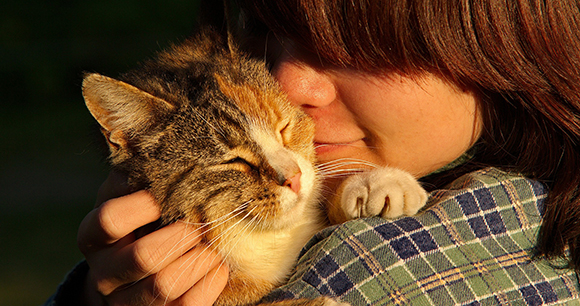
Washington, DC—One out of every five intentional animal cruelty incidents reported to police involves another criminal offense, according to a new study by researchers from the Animal Welfare Institute (AWI) and American University’s School of Public Affairs. Using newly available police data from across the country, the study is one of the first to analyze and categorize crimes against animals as either neglect or intentional cruelty.
“Cruelty incidents that come to the attention of police are particularly important to study, as they present opportunities for intervention and treatment,” said Dr. Mary Lou Randour, senior advisor for AWI’s animals and family violence program. “Research that distinguishes between intentional cruelty and neglect is especially significant because we know that early, recurring physical aggression against animals and anti-social behavior are linked to violent behavior against animals and people that continues into adulthood.”
The study, published in Criminal Justice Police Review and titled “Intentional Cruelty Versus Neglect: New Insights on Animal Cruelty Crimes and Implications for Policy,” cites FBI Uniform Crime Reporting Program data for 2017 and 2018, the most recent years available. Starting in 2016, the FBI began collecting data on animal cruelty incidents from state and local police under its National Incident-Based Reporting System (NIBRS).
“Animal cruelty has received growing scholarly attention over the past few decades,” said Dr. Lynn Addington, a criminology professor at American University’s School of Public Affairs. “Previous research tended to group both forms of cruelty together, which limited the ability to develop targeted prevention and intervention policies. We hope that our research will help prevent crime and inform policy.”
According to Addington and Randour, “intentional cruelty” encompasses violent acts such as beating or killing an animal, animal fighting, and animal sexual assault, while neglect is more passive, such as failing to care for an animal.
“We were surprised to see the difference in co-occurring offenses between intentional cruelty and neglect,” said Addington. “While the majority of both types of animal abuse occur independently, 20% of intentional animal cruelty crimes occur with another offense, including violent crimes against people, compared to only 3% of neglect incidents.”
Youth ages 18 and under were almost seven times more likely to be involved in intentional animal cruelty than in passive neglect, the study found. Males were slightly more likely to be involved in neglect cases and four times more likely to be involved in intentional animal cruelty. More than a third of intentional cruelty incidents ended in an arrest, compared to only a quarter of neglect cases, the authors reported.
“AWI urged the FBI to add animal cruelty as a separate category to NIBRS, which made this research possible,” Randour said. “Our findings illustrate how important it is for law enforcement agencies to take animal cruelty crimes seriously—both as an animal welfare and public safety issue—and to systematically collect and report incidents to federal authorities.”
- Marjorie Fishman, Animal Welfare Institute
[email protected], (202) 446-2128 -
Natasha Abel, American University
[email protected], (202) 885-5950
The Animal Welfare Institute (awionline.org) is a nonprofit charitable organization founded in 1951 and dedicated to reducing animal suffering caused by people. AWI engages policymakers, scientists, industry, and the public to achieve better treatment of animals everywhere—in the laboratory, on the farm, in commerce, at home, and in the wild. Follow us on Facebook, Twitter, and Instagram for updates and other important animal protection news.
American University (american.edu) leverages the power and purpose of scholarship, learning, and community to impact our changing world. AU’s faculty, students, staff, and alumni are changemakers who shape the future from sustainability to social justice to the sciences. Building on our 128-year history of education and research in the public interest, we say ‘Challenge Accepted’ to addressing the world’s pressing issues. Our Change Can’t Wait comprehensive campaign creates transformative educational opportunities, advances research with impact, and builds stronger communities.